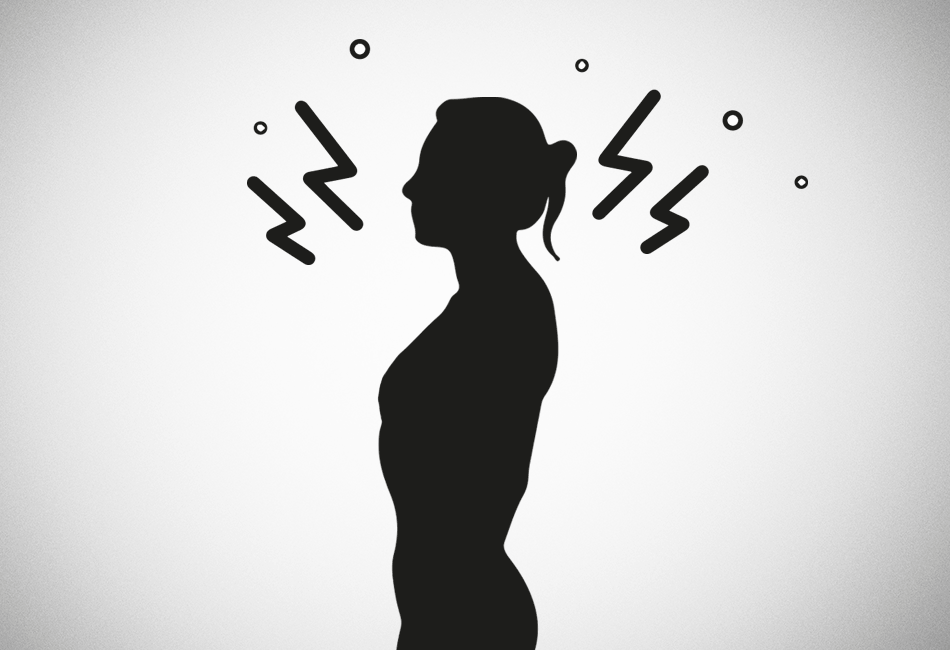We are obviously born to breathe air. Just because we do something from birth doesn’t necessarily mean we are good at it. This is why we have science-backed articles on the correct way to breathe when you exercise and how to breathe when you exercise in order to get the most out of each workout.
But what about breathing when we don’t exercise? You’d think that, being natural, born air-breathers, breathing right on a daily basis is something that we are … well, just born to do. Apparently not though. The reason why this is not so lies in the mechanics of breathing and these are, primarily, found in the brain.
The current scientific thinking behind the neural mechanisms guiding breathing indicates that the very act of breathing activates specific centers in the brain which coordinate how the brain works. Breathing itself delivers specific tangibles in terms of the volume of oxygen it brings in and the amount of carbon dioxide it removes from the bloodstream (the VO2 Max we’ve often talked about when training in cold weather).
We have seen a small example of how the brain works differently depending on how we breathe when studies showed that when breathing in through the nose and out through the mouth we are capable of strategic thinking while breathing in and out just through the mouth, we are not. This is despite the fact that in both cases the amount of oxygen we receive in our lungs is exactly the same.
Breathing Activates A Loop In Our Brain
A 2018 study published in the Journal of Neurophysiology[1] indicates that breathing is even more complex than originally thought. Using subjects who employed a variety of breathing techniques while being studied using electrodes that charted brain activity, the study showed that when we control our breathing and when we become aware of it we change the way the brain prioritizes the work of different centers.
This in turn enables the brain to affect the workings of processes that would normally be automatic. Many of these automatic processes are activated during interoceptive attention.[2] This last one is key because it actually means the ability to identify, access, understand, and respond appropriately to the patterns of internal signals of the body. To put this in context think how suddenly stepping under a cold shower or taking a dip in an icy-cold sea seems to take our breath away and we start taking deep breaths that relax our diaphragm and flood our bloodstream with oxygen and only then can the extreme sensation of cold be managed.
That, is a perfect example of the body’s survival response to the potential threat of involuntary shutting down of the body’s critical organs due to the shock caused by the massive temperature difference and the overload of sensations sent to the body from the nerves that experience the sudden cold. The sensations we feel in that situation represent the body’s internal state. Breathing deeply allows us to manage it better so it does not overwhelm us. Whether we realize it or not, our sudden deep breaths, allow us to become aware of how our internal processes function.
This is also, why meditation (see our handy guide to meditation) works in lowering stress, improving wellbeing and making us healthier.[3]
Emotional Regulation And Your Breathing
A 2017 study published in the journal Frontiers Psychology[4] used 40 volunteers of various ages to test the effect of deep breathing on stress, emotional regulation and cognitive performance. The researchers discovered that long, deep breaths that stretch the muscles of the diaphragm and introduce plenty of oxygen into the bloodstream help reduce feelings of anxiety, dampen the production of cortisol,[5] also known as the stress hormone, and improve the ability of the brain to better synchronize its various centers, focus and think more clearly.
What this means in practical terms is that when you feel stress and anxiety, both internal conditions that are a direct response to external environmental stimuli, you can take steps to mitigate their impact and control how you feel.
Make sure you are sitting down somewhere and are comfortable then practice the three-step breathing method:
- Take 10-20 quick deep breaths and exhale quickly. You may feel a little lightheaded but that is perfectly normal.
- Now take one deep breath. As deep as you can, so that you really fill your lungs to capacity. Hold that breath until you have to absolutely breathe again.
- Finally take one more deep breath. Hold this one to a slow count of 10. Release slowly, completely emptying your lungs.
You can repeat this if you like two-three times, without any break.
Summary
Breathing is regulated by emotions. How we feel in response to things we experience. Stress and anxiety affect our ability to breathe properly and that, in turn, affects the health and wellbeing of our body and brain. By consciously focusing on how we breathe during times when we experience some difficulty and employing guided breathing techniques we can reduce our levels of stress and anxiety, become more mindful and more focused and more productive. It also happens to make us healthier,[6] too.
Research
- Jose L. Herrero, Simon Khuvis, Erin Yeagle, Moran Cerf, and Ashesh D. Mehta. Breathing above the brain stem: volitional control and attentional modulation in humans. Journal of Neurophysiology 2018 119:1, 145-159
- Price CJ, Hooven C. Interoceptive Awareness Skills for Emotion Regulation: Theory and Approach of Mindful Awareness in Body-Oriented Therapy (MABT). Front Psychol. 2018;9:798. Published 2018 May 28. doi:10.3389/fpsyg.2018.00798
- Gibson Jonathan. Mindfulness, Interoception, and the Body: A Contemporary Perspective. Frontiers in Psychology, Vol 10, 2019, Doi: 10.3389/fpsyg.2019.02012. ISSN:1664-1078.
- Ma X, Yue ZQ, Gong ZQ, et al. The Effect of Diaphragmatic Breathing on Attention, Negative Affect and Stress in Healthy Adults. Front Psychol. 2017;8:874. Published 2017 Jun 6. doi:10.3389/fpsyg.2017.00874
- Perciavalle, Valentina & Blandini, Marta & Fecarotta, Paola & Buscemi, Andrea & Di Corrado, Donatella & Bertolo, Luana & Fichera, Fulvia & Coco, Marinella. (2017). The role of deep breathing on stress. Neurological Sciences. 38. 451-458. 10.1007/s10072-016-2790-8.
- G, Sunitha & N., Ravi. (2013). EFFECT OF DEEP BREATHING ON RESPIRATORY PARAMETERS IN HEALTHY YOUNG INDIVIDUALS. Journal of Evolution of Medical and Dental Sciences. 2. 3305-3312. 10.14260/jemds/698.










